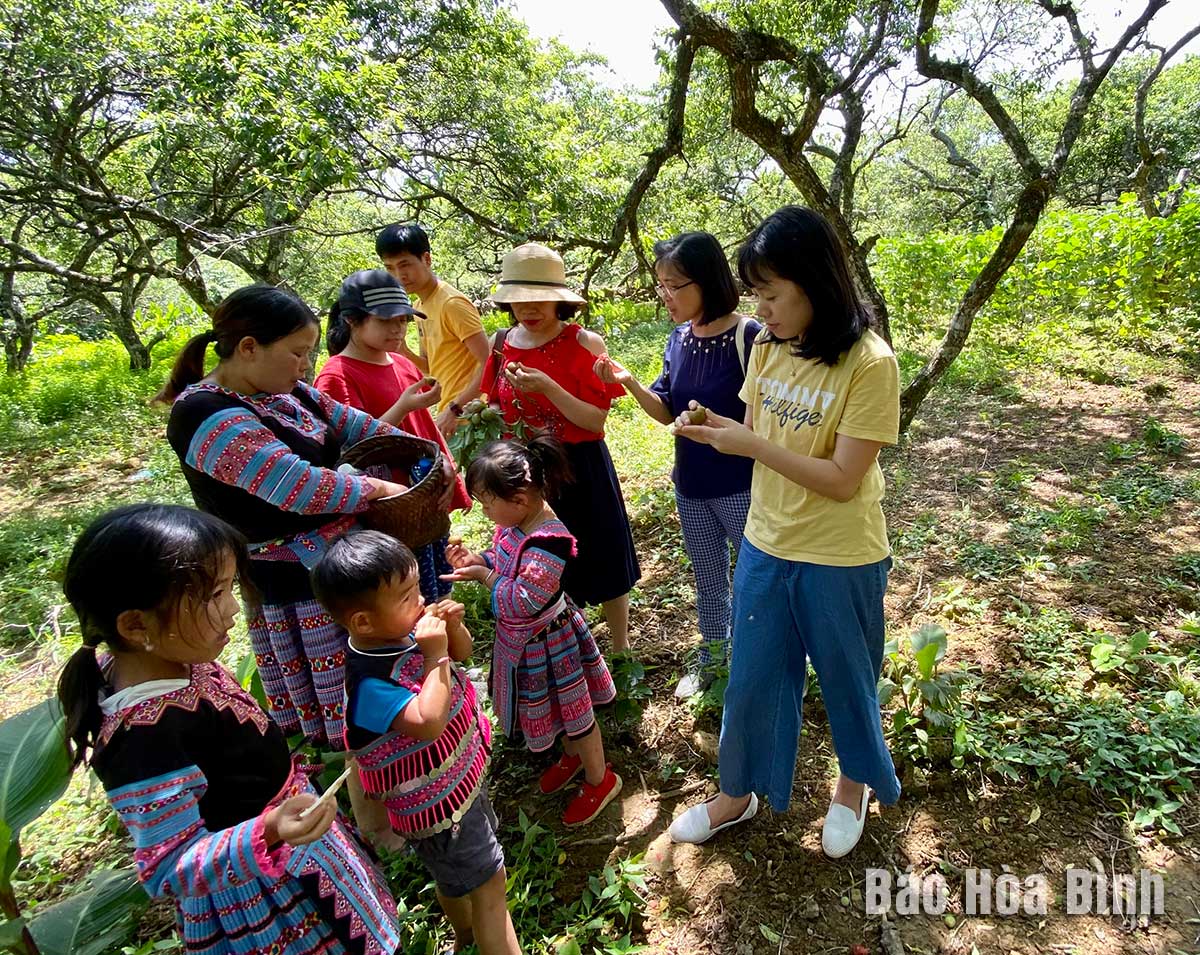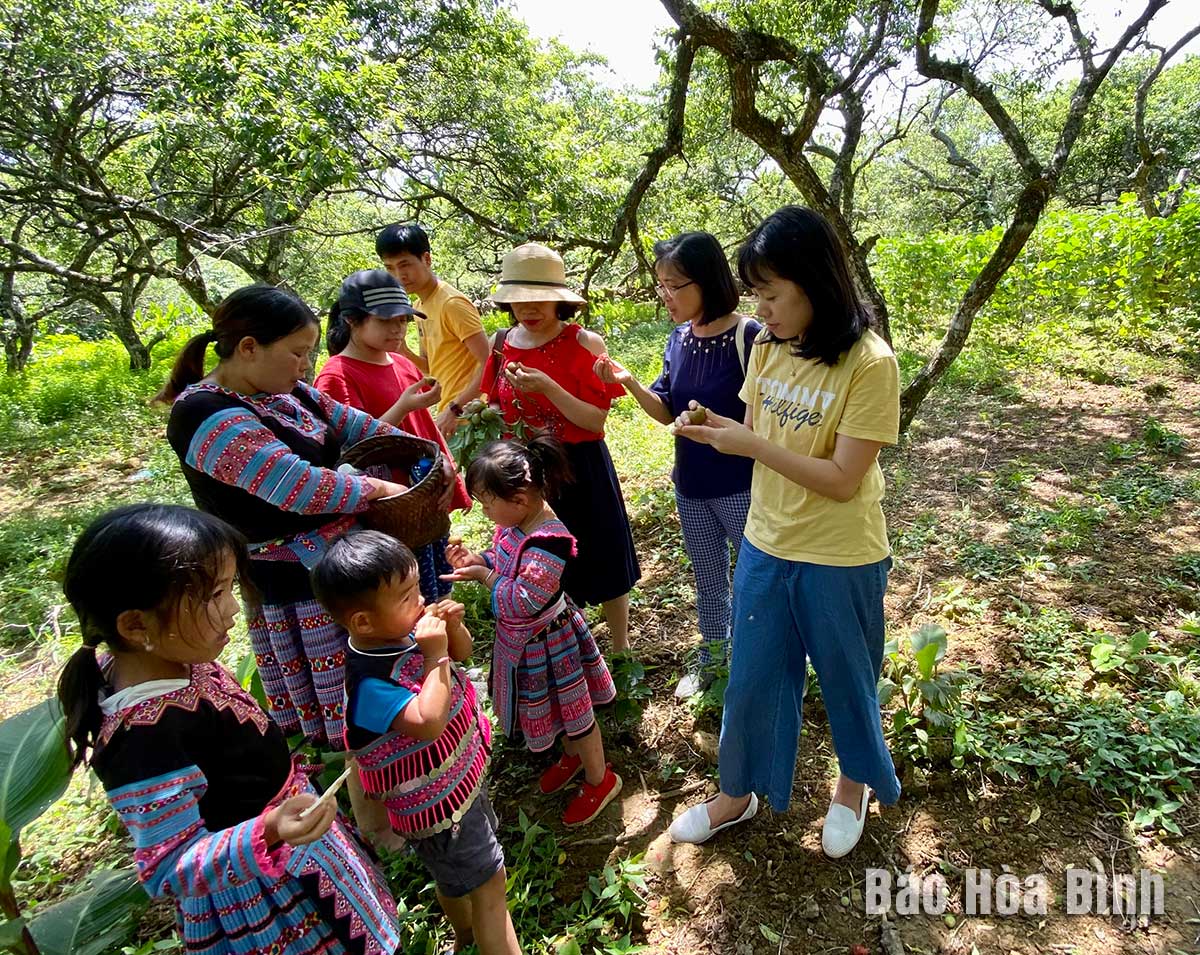
In the aesthetic concept of the Mong people, a woman's beauty is partly reflected through her clothes. In Mai Chau district, there are two communes inhabited by the Mong ethnic people, namely Hang Kia and Pa Co, with a combined population of over 6,000. Despite the strong development of the society, the cultural identity, notably traditional costumes, of local people is still preserved and promoted.
![]()

Mong ethnic costumes are regularly
used by locals, contributing to the attractiveness of community-based tourism
in Pa Co commune (Mai Chau).
As a local, besides working as a preschool
teacher, Sung Y Do in Cha Day hamlet, Pa Co commune, is also very passionate
about preserving traditional culture, especially linen weaving, fabric dyeing,
sewing, and embroidering costumes. She also shows her love for ethnic costumes
through her habit of wearing them at school and in her daily life.
In recent years, thanks to the promotion of
potential and strengths of natural resources and human resources, the two
communes have become attractive destinations for domestic and foreign tourists.
Local Party committees and authorities have paid attention to maintaining the
organisation of festivals and cultural, art and sport activities to attract
locals to preserving cultural identity and ethnic costumes associated with
promoting community-based tourism development.
As a result, people use traditional
costumes more and more commonly. Many Mong women still wear traditional dresses
while working. On market days, holidays, and Tet, people wear their best
outfits to go out to festivals. In Pa Co commune, there is a traditional
brocade weaving village that maintains its activities, helping visitors
experience stages of making costumes. Another interesting destination in the
commune is Mong Space, Cha Day hamlet, where many traditional costumes that
have been used for hundreds of years are on display to introduce and promote
their beauty, and gradually turn the costumes of the Mong ethnic people in Mai
Chau district into a unique tourism product.
With an increasingly vibrant and widespread emulation movement aimed at building cultured residential areas and cultured families, Yen Thuy District has been making steady progress toward improving both the material and spiritual well-being of its people, while fostering a civilized, prosperous, beautiful, and progressive community.
Once lacking recreational spaces and community facilities, Residential Group 2 in Quynh Lam Ward (Hoa Binh City) has recently received attention for the construction of a new, spacious, and fully equipped cultural house. The project followed the model of state support combined with public contributions in both labor and funding.
The "All people unite to build cultural life" movement, which has been effectively integrated with Kim Boi district’s socio-economic development goals, is fostering a lively spirit of emulation across local residential areas, hamlets, villages, public agencies, and enterprises. In addition, through the initiative, traditional cultural values are being preserved and promoted, while community solidarity and mutual support in poverty reduction and economic development are being strengthened.
A working delegation of the Hoa Binh provincial People’s Committee led by its Permanent Vice Chairman Nguyen Van Toan on June 11 inspected the progress of a project to build the Mo Muong Cultural Heritage Conservation Space linked to tourism services in Hop Phong commune, Cao Phong district.
Born and growing in the heroic land of Muong Dong, Dinh Thi Kieu Dung, a resident in Bo town of Kim Boi district, in her childhood was nurtured by the sweet lullabies of her grandmother and mother. These melodies deeply imprinted on her soul, becoming an inseparable part of her love for her ethnic group's culture. For over 20 years, this love for her hometown has driven Dung to research, collect, and pass down the cultural values of the Muong people to future generations.
In the final days of May, the Ethnic Art Troupe of Hoa Binh Province organized performances to serve the people in remote, mountainous, and particularly disadvantaged areas within the province. These were not just ordinary artistic shows, but they were the meaningful journeys aimed at spreading cultural values, enhancing the spiritual life of the people and contributing to the preservation of ethnic minority cultural identities.



